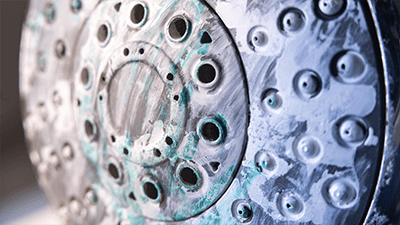A tourist who contracted Legionnaires’ Disease when on holiday in Bali is now in a critical condition in hospital. It is believed that the Australian woman might have breathed in the Legionella bacteria from a water-source or air conditioning unit in her resort hotel. Her family have contacted the health department to request an investigation and have appealed for help from other holidaymakers to gather information.
Isolating the source of the outbreak is crucial to prevent the further spread of this deadly waterborne disease. The legionella bacteria thrives in stagnant water, which can easily accumulate in neglected pipes, tanks, condensers and calorifiers. It can even survive in taps and spray-heads. Without regular water system flushing, the bacteria will remain a risk to anyone who comes into contact.
Inhabiting airborne water droplets, the Legionella bacteria enters the lungs and can cause serious pneumonia symptoms. These might include fever, chest pain, headaches and nausea. Legionnaires’ can be mistaken for flu at first, until medical advice is taken, so it poses a very real public health risk to visitors, staff and residents of affected facilities.
Holiday resorts worldwide, such as hotels and permanent accommodation, are particularly susceptible to legionella build-up, due to the need for air conditioning, water storage tanks and numerous water outlets. Many larger resorts can also contain pools and communal washing facilities. These are all ideal habitats for the bacteria to survive and transmit to humans. Facilities managers must be aware of the need to perform regular system flushing, enforce water hygiene protocols and train staff to help prevent future legionella incidences. Neglect of hot-and-cold water systems can have fatal consequences, and it is the responsibility of facility managers to adequately maintain all outlets, pipework, storage tanks and structures.
We provide comprehensive courses designed for building managers to help them carry out risk assessments, test for risk factors and prevent the build-up of dangerous bacteria like legionella.
Find a full list of our courses here, or contact our friendly Account Managers on
0333 121 1215 or email
info@ppltraining.co.uk to find out more.

